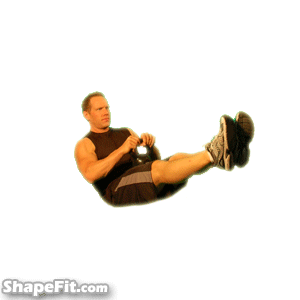Does Intermittent Fasting Make You Gain or Lose Muscle?
Effects of Intermittent Fasting on Muscles
While there is ongoing debate, scientific evidence suggests that intermittent fasting can affect your muscles. Here are a few potential outcomes:
1. Muscle Loss
Intermittent fasting involves periods of restricted calorie intake, which may result in a calorie deficit. Over time, severe calorie restriction can cause the body to break down muscle tissue for energy. This can lead to muscle loss, especially if you are not engaging in regular resistance exercise.
2. Muscle Preservation
Some research suggests that intermittent fasting, when combined with regular exercise and adequate protein intake, can preserve muscle mass. Resistance exercise (weight lifting) stimulates the synthesis of muscle proteins and minimizes the breakdown of muscle tissue, counteracting the potential muscle-wasting effects of calorie restriction.
3. Increased Growth Hormone
Intermittent fasting has been shown to increase the release of growth hormone (GH), which plays a crucial role in building and repairing muscle tissue. Higher GH levels can enhance the effects of resistance exercise, leading to better muscle growth.
Conclusion
While intermittent fasting can impact muscles, its effects are complex and depend on various factors, including overall calorie intake, protein intake, exercise habits, and individual physiology. It is essential to consult with a registered dietitian or a healthcare professional before starting an intermittent fasting regimen, especially if you are concerned about gaining or losing muscle mass.
Here are a few tips for managing muscle mass while intermittent fasting:
- Eat a balanced and nutrient-dense diet during your eating windows. Prioritize whole foods, such as fruits, vegetables, lean protein, and healthy fats.
- Focus on adequate protein intake. Protein is crucial for muscle building and maintenance. Aim for 0.8-1 gram of protein per pound of body weight daily.
- Engage in regular resistance exercise. Strength training stimulates muscle growth and helps counteract muscle loss.
- Stay hydrated. Adequate water intake is important for overall health, including muscle function.
- Talk to a registered dietitian or a healthcare professional. If you have specific goals for gaining or losing muscle, a professional can provide personalized guidance and advice.
-
Thigh Abductors – Quadriceps Exercise Guide with Photos
Exercise Advice: Position yourself in the Thigh Abduct
-
Hamstrings Exercise Guides – Photos and Instructions for Legs
The group of muscles on the back side of the leg, runn
-
One Arm Dumbbell Preacher Curls – Biceps Exercise Guide
Muscles Targeted: Including one arm dumbbell preacher
-
Smith Machine Shrugs – Trapezius Exercise Guide with Photos
Exercise Advice: This exercise is the same as the regu
-
Pedometer Power
Health experts recommend wearing a pedometer with the goal of 10,000 s
-
Gym Workouts to Lose Weight Fast
In todays times, amidst busy schedule, one cannot spend hours in the g
- Exercise Guides
- Incline Dumbbell Flyes – Chest Exercise Guide with Photos
- Standing Two Arm Tricep Extensions – Kettlebell Exercise Guide
- Wide Grip Barbell Curls – Biceps Exercise Guide with Photos
- 2 Leg Supine Elevated Bridge – Core Exercise Guide
- Incline Bench Dumbbell Press – Chest Exercise Guide
- Indoor Exercises to Lose Weight
- Dumbbell Rear Lunge – Quadriceps Exercise Guide with Photos
- Single Leg Switch – Pilates Exercise Guide with Photos
- EZ Bar Preacher Curls – Biceps Exercise Guide with Photos
- Bench Dips – Triceps Exercise Guide with Photos



